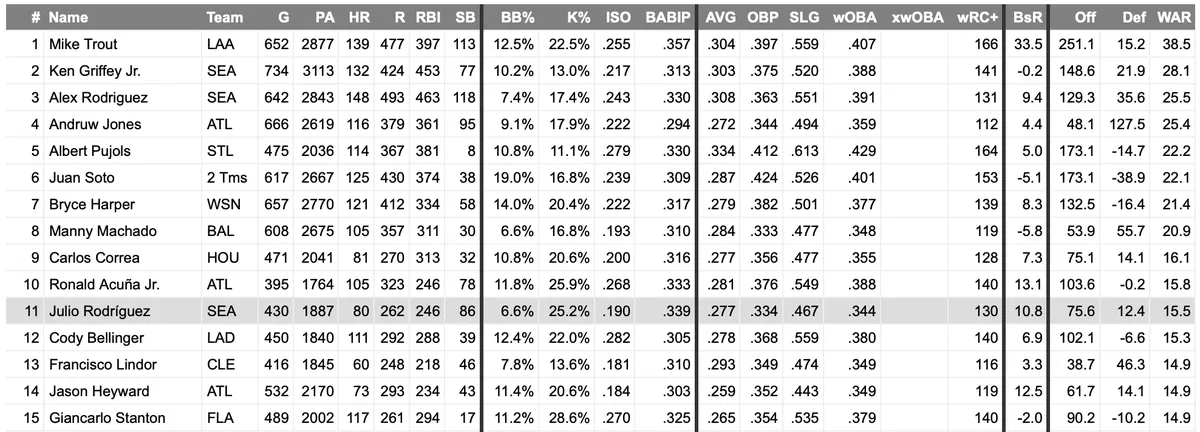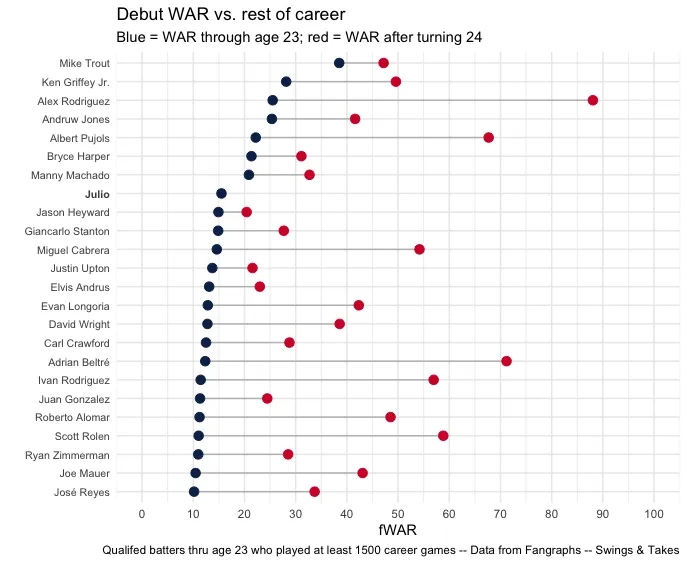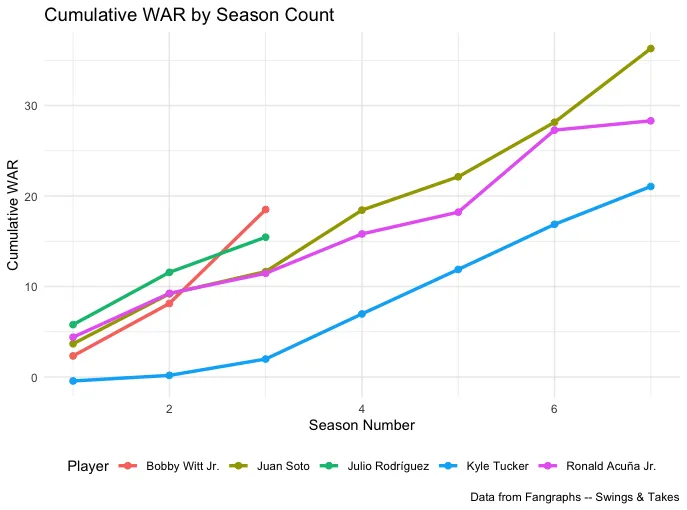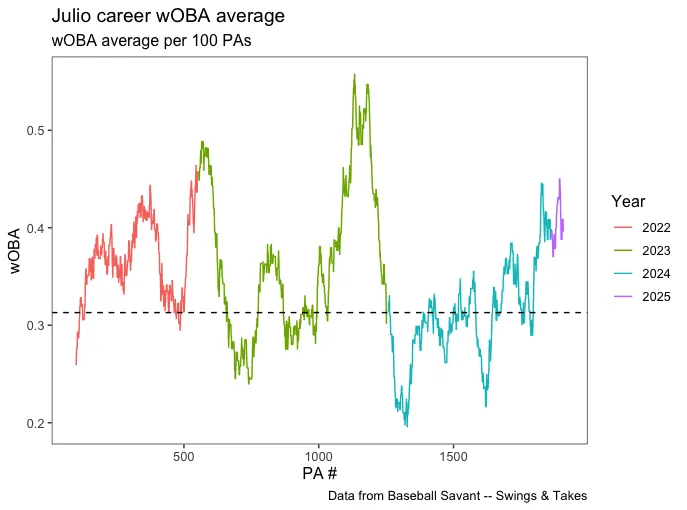Generation Julio
Julio is on track to be a generation-defining player.
Only 45 players in baseball history were more productive than Julio through age 23. He did a bit more in his debut seasons than Willie Mays and Barry Bonds, and he did a bit less than Joe DiMaggio and Rickie Henderson. He was basically equivalent to Denny Lyons and Buddy Lewis, but I don't know who those guys are.
Let's just look at modern baseball, or everything since Ken Griffey Jr. debuted in 1989. Julio ranks 11th.

What happens to players who were at least that good before turning 23?
Since 1989, 38 players have posted at least 10 fWAR before turning 24. Of those, 23 played at least 1,500 career games. The rest are still playing, except for Grady Sizemore, whose career was cut short by injury (which happens). In other words, players who are great early almost always have long careers. And not just long careers but good careers, too. Here are the players who posted at least 10 fWAR before turning 24, and how they performed afterwards:

Every player on the list posted at least 20 more wins after turning 24. Two-thirds posted at least 30 more wins. There are better and worse legacies on this list, but more than half the batters went on to post at least 50 career fWAR (and some are still playing).
Let's look at Julio's contemporaries -- Gen Z. There are 24 batters born in 1997+ with at least 10 career fWAR. Julio has the 11th most fWAR among Gen Z batters. His pace per game is eighth. The following batters have a plausible shot at Best Zoomer (fWAR through 2024):
- Juan Soto - 36.3
- Ronald Acuña Jr. - 28.3
- Yordan Alvarez - 23.3
- Kyle Tucker - 21.1
- Fernando Tatis Jr. - 20.4
- Bobby Witt Jr. - 18.5
- Julio - 15.5
- Gunnar Henderson - 13.6
This next plot is cumulative fWAR by season for the most notable Zoomers. It isn't apples-to-apples, as some players began their career with a briefer stint or at a different age (and COVID is its own limiter). But it's a useful illustration nonetheless:

No Zoomer was more productive in their first two seasons than Julio (a fact that extends beyond this isolated group). Even with a "disappointing" junior year, only Witt Jr. was more productive in his first three seasons.
If Julio were to continue his 5-win-per-season pace, he'd be roughly in the same spot as Soto after his seventh season (a stretch the Mets deemed worthy of $765 million). If Julio halved his production and posted a 2.5-win-per-season pace, he'd be roughly in the same spot as Tucker (a stretch worth a to-be-determined-but-probably-large amount of cash).
And that's despite Julio not yet reaching his full potential.
If it's not clear, this post is somewhat in response to the general grumbling I've seen around the blogosphere (and official media) about Julio. I won't address the idea that he's "lazy" or "has a low baseball IQ" or any of the other unfortunate ideas posed by our Monday Morning Psychologists. But to the extent the narrative exists that he's disappointing in some way, I think the charts above show how few players now or ever have been as productive as Julio at this stage in his career.
Still, Julio has been undoubtedly inconsistent at the plate. He was mostly great in 2022. He started slow in 2023 but finished as a top 20 batter overall. He started slow again in 2024 and (again) figured out, but maybe just a bit too late. Here's Julio's rolling wOBA since his debut -- each point on the graph represents the previous 100 plate appearances:

I think it’s a mistake to “worry” about this. Development isn’t linear. Most great players have stretches of inconsistency at the plate at various points in their career, and not all of them provide so much value in the field and on the bases during those (relative) slumps.
And while it's still too early to even say "it's early," Julio has stampeded his way out the gate in 2025. He's hitting the ball harder than ever, and he's chasing a bit less. He's hitting homers, drawing walks, stealing bases, tracking down balls, and throwing runners out. Maybe Julio's best is yet to come.
--